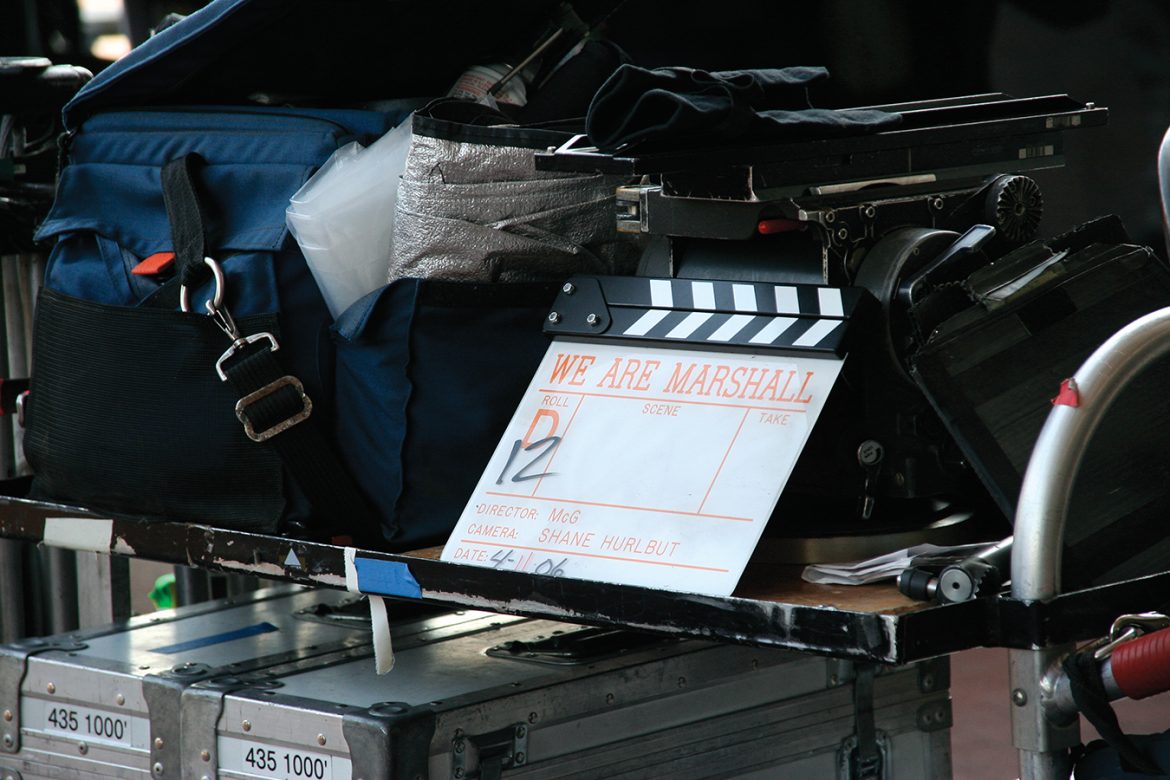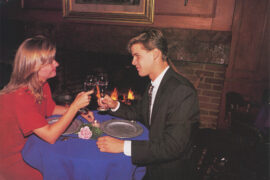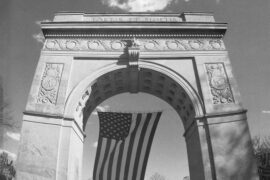A look back at one of the most emotional, exciting and healing events in Huntington’s history
By Keith Morehouse
HQ 95 | AUTUMN 2016
Fourth Avenue in downtown Huntington never looked so good.
Dec. 12, 2006 was the night Hollywood came to town as the movie We Are Marshall premiered at the historic Keith-Albee Theatre. There was glitter and glam on display for all to see. The well-worn pavement was covered by green carpet. Fans craned their necks from windows above the storefronts to see the parade of tuxedos and evening gowns. Stars and stargazers were on hand for the event. A-listers like Matthew McConaughey, Matthew Fox, Anthony Mackie and Kate Mara strolled past flashbulbs and cameras. Bright lights, meet the little city.
But, it’s impossible to tell the story of We Are Marshall without learning what happened outside the yard lines.

On Nov. 14, 1970, a chartered jet carrying the Marshall University football team back from Greenville, North Carolina, crashed upon approach to Tri-State Airport, killing all 75 people on board. Back in 2005, Warner Bros. had decided to take a screenplay written by Jamie Linden and Corey Helms, and make a film about the most devastating tragedy in American college sports history.
The studio could have made the movie without Marshall’s blessing, but it would be better for everybody if the school signed off on the project. Dr. Keith Spears, vice president of marketing and communications at Marshall at the time, had heard movie proposals before, but he was most impressed with Warner Bros. He would serve as a constant liaison between the moviemakers, the families of those who lost loved ones, the university and those who were portrayed in the film.
Jack Lengyel was charged with the task of trying to rebuild a program, which was ripped apart by the tragedy, some wondering if it could ever be pieced back together again. He and his assistants took on the Sisyphean-like task of trying to push the boulder up the mountain, to resurrect a football program lost on that rainy November night. The “Young Thundering Herd” won two games in that 1971 season, and those wins might as well have been national championships. That season, and subsequent Herd successes, proved to be the inspiration for bringing the Marshall story to the masses. However, the idea was met with plenty of skepticism in the early going.

“It was a movie whose time had come to be told,” Jack Lengyel says. “It brought the community together, because there was a lot of hesitation. We were concerned about whether they would make a movie that really told the story, or whether it would be like a Beverly Hillbillies movie.”
Part of the way the moviemakers could allay the fears was to come to Huntington and get the “feel” of the story up close and personal. Whether it was producers Basil Iwanyk and Mary Viola walking the sidelines at a Marshall football game or director McG visiting Spring Hill Cemetery, they wanted to learn the story from the inside out.

With some financial help from the state of West Virginia, McG and Iwanyk helped convince the executives at Warner Bros. to film part of the movie in Huntington. For three weeks, downtown Huntington went back in time, transformed and dressed up as it looked in the early 1970s. Crews also filmed scenes at Marshall. The whole city was buzzing during the shoots, as Warner Bros. involved the campus and the community, asking students and residents to get involved as extras in the movie.
During their stay in Huntington, the cast and crew took an almost reverential tone when talking about reasons for making the movie.
“Very seldom do you read stories like this that are based on something that happened, something in history,” says Matthew McConaughey, who played Coach Lengyel. “My creed has always been to ‘just keep livin’. That’s what happens in this story. Through the game of football, a team, a community comes together on the proverbial field to play and move on with memory and with hope.”
Part of director McG’s impetus for taking on the project was to film some of the scenes in Huntington and at Marshall. The city and the school had to be more than bit players in this movie. The message would resonate much louder if it came from Huntington and not some studio soundstage.
“We want to get this story told properly and represent the community fairly and get the story out to the world,” McG said at a news conference prior to the movie’s release.

Convincing former Assistant Coach Red Dawson to get involved in the movie was a more difficult proposition. As strong and sturdy as the former Florida State football player was, he was initially shaken by the idea of a movie treading on what was sacred ground to him. At first, he wasn’t interested. Slowly, but surely, Dawson decided to help.
We Are Marshall helped him right back.
“Making the movie was very emotional starting out and the further we got involved the easier it got,” Dawson says. “I can talk about it now, and I don’t know when I’m going to get emotional but I can still talk about it and stay straight. It may come any minute, but it hasn’t in a while. I used to have some nightmares, too, but not for a while. It’s been very healing for me.”
The effort put forth by Warner Bros., and the cast and crew, noticeably impressed the coach of the Young Thundering Herd.
“We had to put some trust in Warner Bros. and fortunately it came out just the way they told us,” Lengyel says. “They assured us they would tell it with dignity and honor and respect for everybody involved in the tragedy, and we took them at their word. I believe they accomplished that.”
The long-term effects of the movie are still being felt at Marshall.

“The most amazing thing is that we still have freshmen that come here and they say the movie is what influenced them to come to Marshall,” says Ginny Painter, senior vice president of communications and marketing. “We still get a recruiting bump from We Are Marshall.
The university is planning a big 10-year celebration of the movie’s release the weekend of Nov. 11-12. The plans include a reception Friday night. The Herd will wear black jerseys for the Nov. 12 game against Middle Tennessee. The memorial ceremony is set for Nov. 14.
And that date is why Hollywood came calling 10 years ago.
Huntington Mayor Steve Williams, a former Marshall player in the years after the crash, remembered premiere night like it was yesterday.
“It was so real,” Williams says. “It helped us come to terms with what happened, and it showed the resiliency of our city. We’ve been through some pretty rough times and taken to our knees and persevered. There was a lot of Hollywood in the movie but it showed the heart of the city and the university.”
We Are Marshall is the story of a city and a school inextricably tied together by tragedy. And they’re both stronger for it – the stuff movies are made of.






